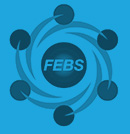
Programme features
Each day will include a plenary session with invited lecturers and a workshop with selected talks. Poster sessions will be held on three evenings. To promote training and career development of Early Career researcher, the program will also include three Elevator talk sessions. Here, for each session 10 PhD students or postdoctoral fellows are selected to give brief talks on their posters.
Plenary sessions
There will be 6 morning plenary sessions from Sunday to Thrusday, with a total of 26 plenary lectures and six chairs. Plenary sessions will start with a 20-minute talk by the session chair a leading researcher who will give an introduction on the topic of the session and summarize developments in the recent literature and the important questions guiding new research. This introductory talk will be followed by 30 min lectures given by recognized experts in the field. Lecturers are asked to keep enough time for discussion with the audience. In order to facilitate subsequent exchange between lecturers and students, lecturers will be available at selected ‘meet the speaker’ tables during lunch for discussion with interested course participants.
Workshops
There will be 4 afternoon workshops from Sunday to Thursday. The topics addressed in these workshops will mirror those of the morning plenary sessions. These workshops will be chaired by the speakers of the morning session or attending members of the International Scientific Advisory Board and will include four 15-minutes oral presentations by young PIs and post-doctoral fellows. These presentations will be selected from abstracts submitted by the attending PhD students, post-doctoral fellows and PIs. Further to this, there will be 3 Elevator sessions on Days 2, 3 and 5 to coincide with the evening Poster sessions. For this, ten 5-minutes oral poster talks by PhD students or junior post-doctoral fellows will be selected. Selection of abstracts for oral presentations will be made by the International Scientific Advisory Board after evaluation of submitted abstracts on the basis of the scientific quality of the contributions.
Poster sessions
The poster sessions will represent an essential part of the lecture course. All students will have to participate in the poster sessions. All abstracts, whether they are selected or not for an oral presentation, will be on display as posters during the entire course to facilitate discussions. We will have three dedicated poster-viewing sessions and authors will have to be present at their poster in one of these three sessions. Thirty of the submitted poster abstracts will be selected for short talks spread over three afternoon sessions preceding the poster viewing sessions. Each poster session will last 2 hours (8 to 10 pm).
Key-note lectures
On the Saturday evening, the meeting will start with a key-note lecture by Prof. Christophe d'Enfert (Institut Pasteur, France). Prof d'Enfert as been the main organizer of this meeting for several years. Current research in his laboratory focuses on the development of tools for functional genomics of C. albicans and the study of C. albicans genome dynamics and diversity, biofilm formation and morphogenesis. Over the years he has made major contributions to the field.
The meeting will close with a second key-note lecture by Prof. Leah Cowen (University of Toronto, Canada), who has made major contributions to our understanding of Candida pathogenicity and drug sensitivity and the role of molecular chaperone Hsp90 in these processes. She is one of the most respected researchers working on Candida albicans.
Young Investigator Awards
All abstracts submitted by graduate students or post-doctoral fellows as first authors will be subject to evaluation by selected members of the International Scientific Advisory Board (to be determined during the course). The presenting authors of 8 abstracts (4 short talks and 4 posters) with the highest scientific merit will be awarded a “Young Investigator Award”. We will approach pharmaceutical companies, professional societies or mSphere, an ASM publication, to fund these awards as was the case for previous HFP editions. These awards genuinely stimulated the students to present excellent talks and posters during the last eight courses.





